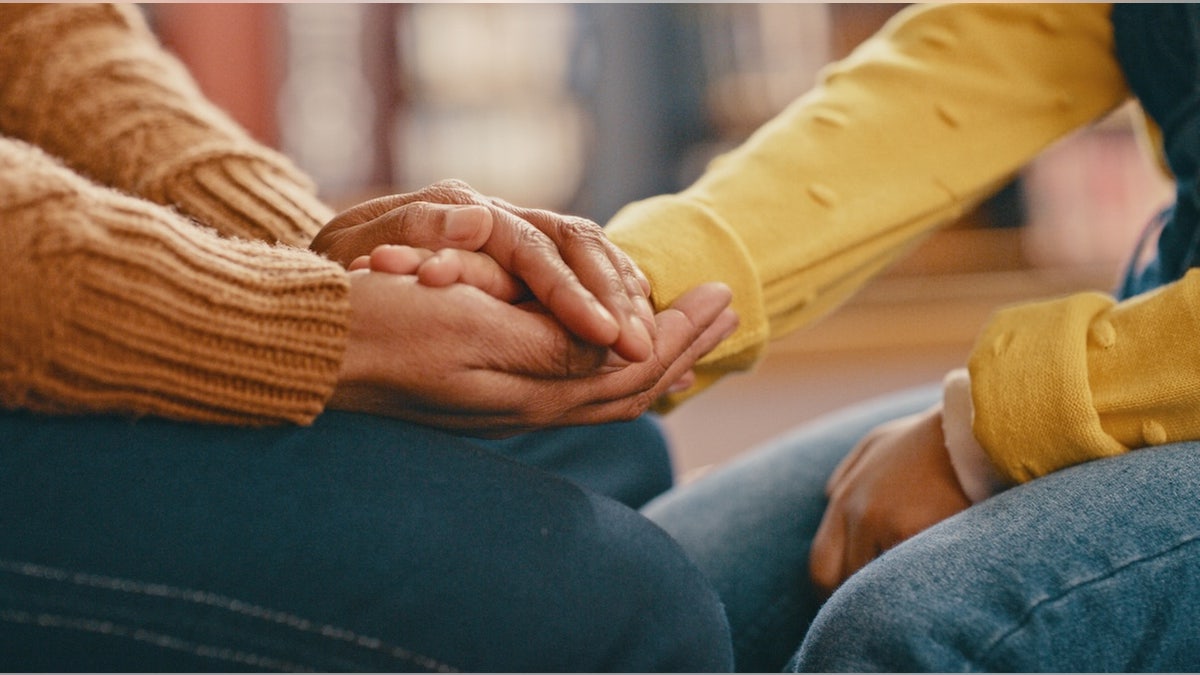This story discusses suicide. If you or someone you know is having thoughts of suicide, please contact the Suicide & Crisis Lifeline at 988 or 1-800-273-TALK (8255).
Suicide is a leading cause of death in the U.S., with more than 49,000 people taking their own lives in 2022, according to the Centers for Disease Control and Prevention (CDC).
Although most suicides stem from mental health disorders, statistics show that the behavior can sometimes be “contagious,” leading to “suicide clusters.”
Suicide clusters are defined as “a group of suicides or suicide attempts that occur closer together in time, space or both than would normally be expected in a community,” the CDC states.
ON WORLD SUICIDE PREVENTION DAY, NEW REPORT IDENTIFIES THREE TOP FACTORS DRIVING SUICIDE RATES
Dr. Caroline Fenkel, a licensed clinical social worker in Pennsylvania, who is an expert in suicide prevention, confirmed that the act can have a contagion effect — particularly among young people.
Although most suicides stem from mental health disorders, statistics show that the behavior can sometimes be “contagious,” leading to “suicide clusters.” (iStock)
“When individuals hear about a suicide, especially someone close to their age or in their community, it can feel more accessible as an option in moments of distress,” she told Fox News Digital.
“The more the details are shared, especially in sensational ways, the greater the risk.”
Up to 5% of youth suicides can be attributed to contagion, according to Jennifer Kelman, a licensed clinical care social worker in Florida who works with JustAnswer, an expert help on-demand platform.
“It doesn’t necessarily increase for everyone in that community, but rather for those who are struggling as well — with depression, anxiety and other feelings that may be overwhelming,” she told Fox News Digital.
5 possible reasons for suicide contagion
Dr. Deborah Gilman, owner and chief licensed psychologist at Fox Chapel Psychological Services in Pennsylvania, shared the following four factors that could contribute to suicide clusters.
1. Normalization
When people hear about suicides, it can normalize the idea of using it as a way to deal with problems, according to Gilman.

Experts encourage people to talk openly and compassionately about mental health to help reduce the stigma. (iStock)
“People often look to others for cues on how to behave,” she told Fox News Digital.
“If they see that many others are choosing suicide, they may believe that it is the socially acceptable or ‘correct’ thing to do.”
2. Copying or modeling
“Some individuals may feel a sense of connection or empathy with the person who died and may imitate their actions,” Gilman said.
“In close-knit communities, schools or social groups, the suicide of one member can lead to others in the same environment feeling similar distress or engaging in similar behaviors.”
“The more the details are shared, especially in sensational ways, the greater the risk.”
Some individuals may imitate the behavior of someone who has died by suicide, especially if they are already struggling with their own mental health, she said.
“This can be due to a sense of hopelessness or a desire to escape their own pain.”
3. Social proof
People may believe that if others are choosing suicide, it must be a valid option for them as well, according to Gilman.
“From social learning theory, if the observed behavior — in this case, suicide — is seen as a positive outcome or a solution to problems, it may be reinforced and more likely to be imitated.”
‘SLEEP DISORDER DROVE MY SON TO SUICIDE,’ NEW YORK MOTHER SAYS: ‘BROKE MY HEART’
This risk can escalate when a celebrity or widely admired person dies by suicide, she added, as it can have a disproportionate impact on those who look up to that individual.
4. Vulnerability
“Individuals who are already struggling with mental health issues — especially depression and anxiety — may be more likely to experience suicidal thoughts or behaviors,” Gilman warned.
Those experiencing difficult life circumstances — such as job loss, divorce or financial struggles — may be more susceptible, she added.

“Pulling away from friends, family or support groups can indicate that the survivor is struggling more than they can manage on their own,” a mental health expert warned. (iStock)
5. Recency bias
“People tend to overestimate the likelihood of events that are easily recalled,” Gilman said.
“If a recent suicide has been widely publicized, it may make the idea of suicide more accessible and salient in people’s minds.”
6 warning signs among survivors
For those impacted by suicide, experts agreed that it’s important to watch for signs of deep distress, including the following.
1. Increased suicidal thoughts
“Experiencing recurring or intensifying thoughts of suicide is a critical warning sign that immediate professional help is necessary,” Gilman advised.
“For instance, the survivor may start having more frequent thoughts about ending their own life or making plans for it.”
They may also express feelings of being overwhelmed to the point where they believe suicide is the only option, she said.
2. Feelings of being a burden
People saying they feel like a burden is a “major red flag,” according to Thomas Banta, a clinical mental health counselor in Jeffersonville, Indiana.
“Many people who try to end their lives feel they are doing the people around them a favor,” he told Fox News Digital.
“When we hear that type of language, intervention is essential.”
3. Inability to cope with daily life
“Difficulty managing daily responsibilities or activities can indicate that the emotional burden is too great to handle without professional support,” Gilman said.

“It’s crucial to highlight help and hope, encouraging those who are struggling to seek support,” a mental health expert said. (iStock)
The survivor may struggle to maintain a job, manage household duties or care for themselves due to their emotional state.
4. Risky behaviors
Engaging in unsafe or self-harming actions is a serious sign that mental health treatment is needed, experts agree.
“For example, the survivor may start harming themselves physically, such as cutting or burning, as a means of dealing with their emotional pain,” said Gilman.
“Many people who try to end their lives feel they are doing the people around them a favor.”
“Or they may engage in dangerous activities, like reckless driving, promiscuous sex or substance abuse, which puts their health and safety at risk.”
5. Severe mood or behavior changes
Significant changes in behavior or mood that affect a survivor’s ability to function in everyday life can be a sign that they need help, according to Gilman.
This might involve the survivor becoming unusually aggressive, withdrawn or apathetic, or displaying behavior that is significantly different from their “normal” demeanor.

Participating in unsafe or self-harming actions is a serious sign that mental health treatment is needed, experts agree. (iStock)
6. Withdrawal from support systems
“Pulling away from friends, family or support groups can indicate that the survivor is struggling more than they can manage on their own,” Gilman warned.
The person might avoid social interactions, decline invitations or isolate themselves from people who usually offer support.
CLICK HERE TO GET THE FOX NEWS APP
The signs aren’t always obvious, however, Banta noted.
“We also see the opposite end of the spectrum, where somebody will make a plan, and their mood lifts because they feel like they have found an escape,” he said.
Preventing contagion after a suicide
Experts offered the following tips to help reduce the risk of “clusters” following a suicide.
1. Use careful communication
“It’s important to be cautious about how we discuss suicide publicly,” Fenkel said.
“Reaching out for support is a sign of strength, not weakness.”
The best way to prevent contagion is through responsible communication, she advised.
“This includes limiting the specifics around the method of suicide and focusing on the impact of the loss,” she said.
2. Offer support
Offering access to crisis resources can help vulnerable individuals feel connected and supported, Fenkel said.

The best way to prevent contagion is through responsible communication, an expert advised. “This includes limiting the specifics around the method of suicide and focusing on the impact of the loss.” (iStock)
“It’s crucial to highlight help and hope, encouraging those who are struggling to seek support,” she said, noting that many schools and communities provide mental health services to help those who are grieving.
Banta agreed, noting that intervention and higher levels of care can stabilize people and help them develop a robust support system.
CLICK HERE TO SIGN UP FOR OUR HEALTH NEWSLETTER
“In terms of public health communication, we must let people know that treatment works and that there is effective help out there,” he said.
3. Stop the stigma
“Stigma can lead to feelings of isolation and loneliness, which can contribute to suicidal ideation,” Gilman warned.
When people feel comfortable discussing their mental health concerns without fear of judgment, they are more likely to seek help from professionals, she noted.

“I have worked with many people who felt hopeless and that their lives would never improve, but then they did,” a therapist told Fox News Digital. (iStock)
Fenkel agreed, encouraging people to talk openly and compassionately about mental health.
“Anyone experiencing thoughts of suicide should know that there is help available, and reaching out for support is a sign of strength, not weakness,” she said.
Suicide is a “fleeting state of mind,” Banta pointed out.
For more Health articles, visit www.foxnews.com/health
“I have worked with many people who felt hopeless and that their lives would never improve, but then they did,” he said.
“So if you are struggling and reading this, there is help. Don’t give up.”
